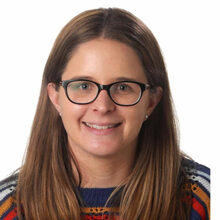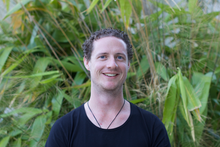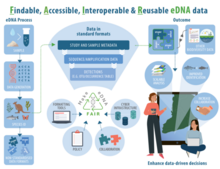Past Events
Seminar by Prof. Matteo Convertino "Climate Design: Emergent Eco-Engineering via Critical Ecohydrological Interactions"
2025年11月18日 (火) 14:00Seminar by Prof. Matteo Convertino
Seminar by Dr. Essie Rodgers "The promise of using physiology to conserve the world’s biodiversity"
2025年11月6日 (木) 13:00Seminar by Dr. Essie Rodgers
Seminar by Dr. José Ricardo Paula "The behavioural complexity of cleaning mutualisms"
2025年11月5日 (水) 11:00Seminar by Dr. Jose Ricardo Paula
Yin Yang of Repetitive RNAs in tissue regeneration and aging
2025年4月2日 (水) 14:00Seminar by Prof. Valerio Orlando
A window to the future: using natural CO2 analogues to predict species responses to a changing ocean
2024年12月12日 (木) 16:00Online seminar by Prof. Davide Spatafora
[Seminar] Making eDNA data FAIR (Findable, Accessible, Interoperable, Reusable)
2024年8月30日 (金) 13:00 〜 14:00Speaker: Dr. Miwa Takahashi, CERC Postdoctoral Fellow, Environomics Future Science Platform, NCMI | CSIRO
Please join our seminar to learn about the FAIR data principles and the project, and start our discussions on the bottlenecks, needs, and strategies to achieve FAIR eDNA.
[Seminar] Don’t assume that you know me! The dangers of biological preconceptions and the fascinating diversity of life.
2023年10月17日 (火) 11:00 〜 12:00Speaker: Dr. Octavio Ruben Salazar Moya
Research Scientist of Marine Science, King Abdullah University of Science and Technology (KAUST).
Hosted by: Professor Timothy Ravasi, OIST Marine Climate Change Unit
Abstract: Climate change poses challenges that urgently require our attention. It threatens to result in major environmental alterations, endangering sensitive ecosystems, water availability, and ultimately food security. In order to ameliorate the effects of climate change, it is crucial that we have an understanding of the biology of the endangered organisms. (...)
[Seminar] The Intricate Dance of Coral Symbiosis: A Journey Through Partnership, Competition, and Environmental Challenges
2023年10月16日 (月) 14:00 〜 15:00Speaker: Prof. Manuel Aranda, Professor of Marine Science, King Abdullah University of Science and Technology (KAUST)
Hosted by: Professor Timothy Ravasi, OIST Marine Climate Change Unit
Abstract: Coral reefs serve as a masterclass in ecological efficiency and evolutionary resilience. These highly productive and biodiverse ecosystems exist in one of the most nutrient-poor environments on our planet, a phenomenon known as Darwin’s paradox. At the heart of these ecosystems are reef-building corals that form the structural and trophic foundation. The metabolic symbiosis between corals and their photosynthetic dinoflagellate endosymbionts (...)
Cancelled [Seminar] Natural analogues provide valuable insights on the potential mechanisms for fish adaptation and acclimation in the face of changing ocean conditions
2023年8月23日 (水) 10:00Speaker: Dr. Davide Spatafora, Shimoda Marine Research Centre (SMRC), Tsukuba University, Shimoda City, Shizuoka, Japan
Hosted by: Professor Timothy Ravasi, OIST Marine Climate Change Unit
Abstract: Natural analogues are characterized by temporal and spatial environmental fluctuations and are home to pre-adapted ‘biodiversity’ (e.g., organisms chronically exposed to high CO2 conditions). Therefore, these spots provide a unique opportunity to investigate the ability of the fish to acclimate or adapt to future ocean conditions thus informing us about how they may adjust in a future world. (...)













